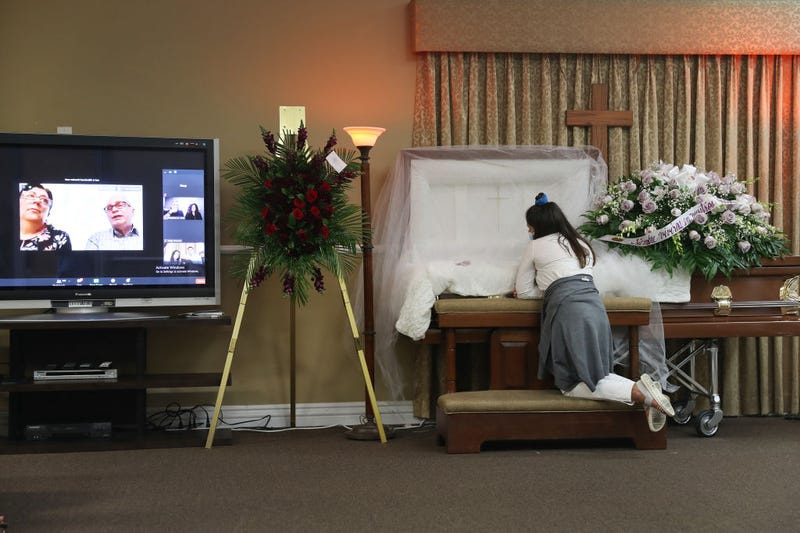
From April to October of last year, the number of children who lost a caregiver to COVID-19 increased by 90 percent to 5.2 million, according to a new study published Thursday in the Lancet journal.
“This finding means that, globally, for every one reported COVID-19 death, at least one child experienced orphanhood or caregiver death,” said the study.
As of Thursday, there have been nearly 6 million deaths attributed to COVID-19 worldwide, according to the World Health Organization. In the U.S., 926,497 COVID-19 deaths had been reported by Feb. 18, per Centers for Disease Control and Prevention data.
Previously, researchers who conducted the new study released findings that over 1 million children had lost a caregiver from the start of the COVID-19 pandemic from March 2020 to April 2021.
“In the [six] months following our estimates from March 1, 2020, to April 30, 2021, the proliferation of new coronavirus variants, updated mortality data, and disparities in vaccine access increased the number of children experiencing COVID-19-associated orphanhood,” said the researchers.
Their findings show that numbers of children affected by COVID-19-associated orphanhood and caregiver death almost doubled in those six months compared with the amount after the first 14 months of the pandemic.
Globally, 76.5 percent of the children were paternal orphans, compared to 23.5 percent who were maternal orphans. Paternal orphanhood exceeded maternal orphanhood in all age ranges and geographical regions.
Most children who lost a caregiver were between 10 to 17 years old, followed by children aged 5 to 9 years old and newborns to 4-year-olds. African, Eastern Mediterranean and South-East Asia regions saw numbers of children affected by orphanhood and caregiver deaths exceeded numbers of COVID-19 deaths.
Earlier studies showed that in the U.S., racial and ethnic minority communities were disproportionately impacted by caregiver loss, CNN reported.
Caregiver loss can have a wide range of impact on children, said the study.
“Children of all ages experience grief and might also experience inadequate care, altered mood of the surviving parent or caregiver, food insecurity, marginal housing, and family disintegration,” it said.
Impact and needs vary by age. For example, younger bereaved children need immediate full-time nurturing and ongoing support for early childhood development, as their quality of care effects healthy development. For adolescents, post-orphanhood issues include sexual violence, exploitation, HIV infection, suicide, teen pregnancy, dropping out of school to care for younger siblings and more.
“Our finding that adolescents were most likely to lose a parent or caregiver can inform priorities for national plans,” said researchers.
“Support for orphaned children must be immediately integrated into every national COVID-19 response plan,” Dr. Susan Hillis, who worked on the study, said in a statement.
They suggest avoiding putting orphaned children in institutional settings due to evidence that this could negatively impact cognitive development and increased risk of violence and exploitation. Instead, they recommend family-based care.
“It is also important to understand that mothers, fathers, and grandparents all matter, but with some differences in effects that vary by culture and context,” said researchers. “The loss of a primary breadwinner is linked to sudden and lasting family economic hardship.”
Additionally, study authors stressed the need for equitable vaccine access to prevent caregiver loss.
As of Feb. 21, more than 10 billion vaccine doses had been administered throughout the world, including around 548 million in the U.S.


